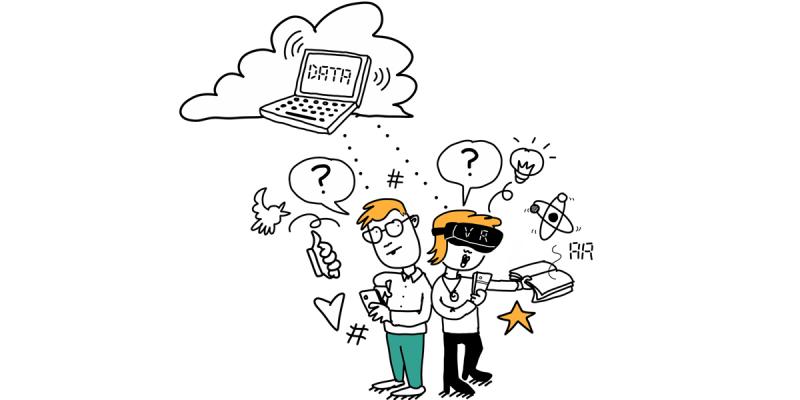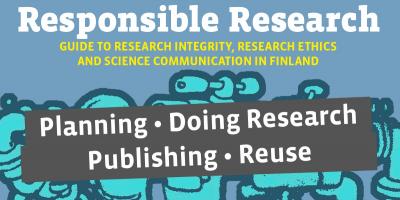Science education helps to boost children’s and adults’ science know-how. It means being familiar with science, research and their importance to society.
Science know-how means basic skills relating to obtaining and evaluating information. These basic skills include, for example, the ability to interpret researched information and to understand scientific and research methods. An understanding of the importance of research in society, daily life and in the area of technology is also central.
Science education is a question of boosting science know-how through communication and teaching. Besides schools and higher education institutions, platforms can also include science centres, museums and the media. Science education is not just about children and young people. It should also provide support for learning about science over people’s whole lifetime.
Formal and informal science education
The science education that takes place in schools and higher education institutions is formal in nature. Formal teaching is teaching provided by the various education organisations in society; it has objectives and is structured. However, a lot of learning takes place in informal environments too. Informal learning happens unintentionally in people’s daily lives, at work and while engaged in hobbies.
When science education is understood broadly as something that affects all scientific fields, all education in schools can really be interpreted as science education. In different school subjects, we are taught not only the research results of the field in question but also its methods. For example, being familiar with interpreting and criticising sources is a central part of teaching history, while physics and chemistry lessons involve doing different experiments.
By their nature, various science clubs and camps, science competitions and multidisciplinary learning projects exist in a middle ground somewhere between formal and informal science learning. Completely informal forms of learning science on the other hand might be a child’s own games or reading the children’s science questions column in a newspaper, for example.
Informal learning plays a key role in adult science education especially. Science communication, for example, is very central to boosting adults’ science know-how. Science news, non-fiction books and articles written for a general audience, documentaries and public science events are good ways of supporting science know-how in adults.
Towards inspiring and wide-ranging science education
Motivation and inspiration are at the heart of all learning. One of the most central aims of science education is indeed awakening an interest in science, research and information. This is often most successful when science is approached via familiar and practical starting points.
The more an individual knows and understands about science, the easier it is for them to take part in scientific debate, making science education a very important factor in increasing scientific openness.
In Finland, there has been a particular focus on science education in mathematics and the natural sciences, which offer ideal opportunities for learning and realisation through experiences. The science clubs and camps run by universities and science centres where people explore the natural sciences through games and experiments are good examples of this.
However, investing in inspiring, experiential science education is important in every scientific field. History, linguistics and economics can also be explored in fun workshops in which the topics find points of contact with people’s lives and the work is tailored to the target group. Different phenomena in people’s lives and in society in general usually offer a good starting point for science education.
Science education makes science more open and increases opportunities for social engagement
Science education increases children’s, young people’s and adults’ knowledge of what science does, its importance and its results. The more an individual knows and understands about science, the easier it is for them to take part in scientific debate, making science education a very important factor in increasing scientific openness.
Good thinking and learning skills also support the individual’s opportunities to take part in current debate in society and form opinions on the basis of researched information. Amid the deluge of information produced by the internet and social media, it is even more important to be capable of critically evaluating the information on offer.
Good science know-how is important capital. High-quality science education produces the thinkers, doers and problem solvers of the future. Supporting lifelong science know-how can also increase decision-making based on researched information.
Sara Takala is a Planning Officer for the Science Education project at the Committee for Public Information.
Further information:
LUMA Centre Finland website: https://www.luma.fi/en/
Aksela, M., Oikkonen J., Halonen, J. (2017) Yhteisöllistä tiedekasvatusta Helsingin yliopistolla vuodesta 2003. Uusia ratkaisuja ja pedagogisia innovaatioita opetukseen varhaiskasvatuksesta korkeakouluihin. University of Helsinki. https://www.helsinki.fi/sites/default/files/atoms/files/isbn-978-951-51-4087-6.pdf
Finland as a world leading country in science education in 2020. Proposal to promote children’s and young people’s science education development. Reports of the Ministry of Education and Culture, Finland 2014:17. http://julkaisut.valtioneuvosto.fi/bitstream/handle/10024/75252/tr17.pdf
Vartiainen, Jenni (2016) Kehittämistutkimus: Pienten lasten tutkimuksellinen luonnontieteiden opiskelun edistäminen tiedekerho-oppimisympäristössä. Dissertation, University of Helsinki. https://helda.helsinki.fi/handle/10138/168314
You might also be interested in
Tämä teos on lisensoitu Creative Commons Nimeä 4.0 Kansainvälinen -lisenssillä. Detta verk är licensierat under en Creative Commons Erkännande 4.0 Licens. This work is licensed under a Creative Commons Attribution 4.0 International license.

